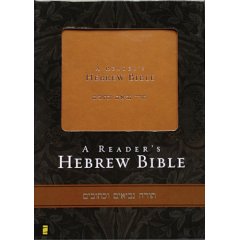Pastor Jeff Meyers, over at Corrigenda Denuo, has posted three very helpful articles (12 points in all) on the topic of the Hebrew name for God, Yahweh. This is a very interesting subject to me and I encourage you all to read it and consider what he has to say about it. I would tend to agree that there is no reason we should keep translating the word “LORD” or “Lord” when that is not specifically what the name means. Yahweh is not simply a title, as “Lord” or “LORD” is. It is God’s covenant name and we need to recognize that when we study, teach, and worship the Triune God with that name.
Here are the articles:
Lord, Language, & Liturgy – Part I
Lord, Language, & Liturgy – Part II
Lord, Language, & Liturgy – Part III
Here is a good excerpt regarding what I mentioned above:
1. Yahweh was given to Israel as God’s “memorial name” (Exod. 3:15). This personal name of God was revealed to Israel so that they might use it in prayer and thus remind God of his covenant so he would act for them. God’s personal name for Israel was not “Lord” but “Yahweh.” As Psalm 20 says, “Some trust in chariots and some in horses but we will memorialize the name of Yahweh our God.” The name of the God of Israel was not “Lord” or “LORD” but Yahweh. They were to call on God to remember (that’s what “memorialize” means) his covenant by using the name he gave them for that purpose. I should say here also that all the gnostic theologizing about what this name really “means” is a distraction. Yahweh is not a “term” that refers to something else, like God’s infinite majesty or whatever. Yahweh is a concrete name given to the Israelites to use, to call out in prayer and praise in their worship.
2. “Lord” is a title not a name. You can make the word “Lord” into all caps, italicize it, bold it, or whatever, but that doesn’t change the fact that it means “Master” or “Sir” and is not a name, certainly not God’s revealed personal name. So when one translates passages like “Let them praise the name of Yahweh” as “Let them praise the name of the LORD” you muck up the meaning badly. In fact, this is not really a translation at all but an altering of the text for some external purpose. God’s revealed name in the Hebrew Scriptures is not “Lord” or “LORD” but Yahweh.
3. The abbreviation YAH is not replaced with LORD in our English translations. We still say and sing “hallelujah,” which means “praise Yah[weh].” Why don’t we sing “hallelu-LORD”? Silly, you say? Just as silly as replacing YHWH with Lord. If saying the whole name is so spiritually hazardous, why isn’t saying part of the name just as dangerous? But YAH was not even replaced by superstitious Jews who refused to say the whole name for fear of judgment. In addition to Hallelujah we still have all the proper names that include Yahweh in them, like Joshua (Heb: Yah-shua – “Yahweh saves”). The best we can say is this is inconsistent; the worst is that it’s evidence of how stupid this superstitious avoidance of the name Yahweh really was and is.
4. Later Jews superstitiously refused to vocalize the name. I’ll get to when this happened in a moment. But the practice of replacing Yahweh with Lord was an act of rebellion, pure and simple. God gave this name for the Jews to use in memorial prayers, Psalms, and worship. Not using it means that they thought they were wiser than God. This is part and parcel with the Pharisaical “fencing of the law.” In order to avoid transgressing the 3rd Word (“taking the name of Yahweh in vain”) the wily Pharisaical Jews decided to just avoid the word altogether. And we want to follow that tradition?



